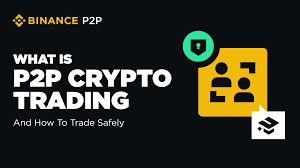The growth of the P2P trading platform has given millions of people worldwide the ability to trade directly, without relying on banks or centralised exchanges. This accessibility, however, comes with responsibility. Peer-to-peer systems put control back in the hands of users, but with that control comes exposure to scams, phishing attempts, and dishonest actors. To benefit from the flexibility of peer-to-peer trading while avoiding its pitfalls, traders must adopt smart practices that enhance safety and build trust.
Understanding the Basics of Safety
The first step to secure trading is awareness. A P2P trading platform typically provides tools such as escrow services, reputation scores, and identity verification. These features are not optional; they are the foundation of safety. Escrow ensures that funds are only released when both sides meet their obligations. Reputation systems reveal the track record of trading partners. Verification processes make it harder for bad actors to create fake profiles. Before starting, every trader should understand how these systems work and why they exist.
Protecting Your Keys and Phrases
The single most important rule of peer-to-peer trading is never to share private keys or seed phrases. Once compromised, control of a wallet cannot be restored by any authority. A P2P trading platform does not ask for this information beyond initial setup, and anyone claiming otherwise is attempting fraud. Traders should store keys offline, use hardware wallets for larger amounts, and keep backups in secure locations. Treating digital credentials with the same care as cash is essential.
Recognising and Avoiding Scams
Scammers often disguise themselves as helpful traders, technical support staff, or even friends. They might send links to fake websites or advertise “recovery services” for lost wallets. On a P2P trading platform, users should be wary of offers that sound too good to be true, avoid clicking suspicious links, and confirm every transaction detail. Fraud detection tools and warnings exist, but personal vigilance remains the strongest defence.
The Role of Escrow in Safe Trading
Escrow is the invisible guardian of peer-to-peer trading. When a trade begins, the platform locks the digital assets in escrow until payment is confirmed. This prevents either side from disappearing with funds mid-transaction. A P2P trading platform may also include dispute resolution mechanisms, where mediators step in if disagreements occur. Understanding and always using escrow services eliminates the vast majority of potential risks.
Building Trust Through Reputation
Reputation systems are more than cosmetic features; they are the social fabric of peer-to-peer markets. By leaving feedback and reviewing partners, traders create a transparent ecosystem where trust is earned, not assumed. A P2P trading platform rewards reliable participants with higher visibility and quicker deals. For new traders, sticking to high-rated partners is a simple yet effective way to trade safely. Over time, every user contributes to shaping a trustworthy marketplace.
Using Technology to Your Advantage
Most platforms now integrate advanced tools for safer trading. Two-factor authentication protects accounts from unauthorised access. AI monitoring flags unusual behaviour. Secure chat features ensure that negotiations remain private and protected. By enabling these options, users make it significantly harder for attackers to succeed. A P2P platform provides the tools — but it is up to individuals to use them consistently.
Learning from Experience and Community
No trader masters safety overnight. Mistakes and near misses are common, especially for beginners. Fortunately, communities built around peer-to-peer platforms share advice, publish guides, and highlight common threats. By engaging with these networks, users gain practical insights that complement platform safeguards. The P2P trading platform is not only a financial tool but also a community resource where knowledge spreads through collaboration.
Balancing Freedom with Responsibility
The appeal of peer-to-peer systems lies in independence. Yet independence requires responsibility. Unlike banks, there is no customer support hotline to restore lost funds if security is neglected. On a P2P trading platform, every trader must balance the freedom of direct exchange with the discipline of safe practices. Those who succeed find not just financial opportunity but also the confidence that comes with control.
The rapid expansion of peer-to-peer systems proves that decentralised finance is here to stay. But its sustainability depends on how responsibly users engage with it. By understanding platform tools, protecting private information, recognising scams, and building trust through reputation, traders can fully embrace the benefits while minimising risks.

